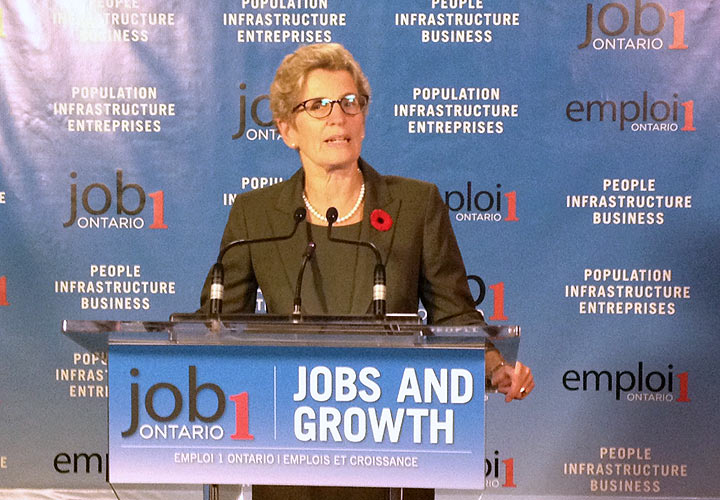
An expert panel report released Monday afternoon recommended tying the province’s minimum wage to inflation and raising it annually (the Retail Council of Canada agreed). But it didn’t recommend a floor, leaving it up to Premier Kathleen Wynne’s government to decide just how much to hike the rate, which hasn’t changed since 2010.
READ: Where do you set the minimum wage?

Government sources told the Canadian Press the province plans to tie the $10.25 minimum wage to post-2010 inflation. That would boost it a whole 75 cents to about $11 an hour.
Working at that wage full-time, year-round nets you about $19,250 – still below under Ontario’s poverty line.
“That’s just not good enough,” says Armine Yalnizyan, senior economist with the Canadian Centre for Policy Alternatives. “If you want people to pull themselves up by their boostraps and they can’t working full-time, full year, you’ve got a problem. And it’s not good enough for a government to stand by and say they’re okay with that.”
Numerous anti-poverty advocates have called for a minimum wage baseline of $14, which would give you an annual income of $24,500 if you were lucky enough to work full-time. Tie that annually to the cost of living, they argue, and you’re on your way to lifting hundreds of thousands out of poverty.
Big hikes to the minimum wage are criticized for hurting small businesses and employment. And this latest expert report noted that raising the minimum wage significantly could actually worsen poverty by putting more people out of work.
But Ladd argues giving the province’s poorest more disposable income would help the local economy more.
“What would you do with $14? The basic things people talk about is, you know, ‘Maybe I’d be able to take my family out to a restaurant once a month; maybe I’d be able to put my kids in an after-school program; maybe I’d be able to buy a second pair of shoes.’
“These are all local economy-supporting, small business kind of purchases – they’re not about buying the car that’s from Germany or going to Mexico.”
Ontario Labour Minister Yasir Naqvi said he’s reviewing the panel’s recommendations and the government “will bring our plan forward shortly.”
READ MORE: Income mapped – how has your neighbourhood changed in a decade?




Comments